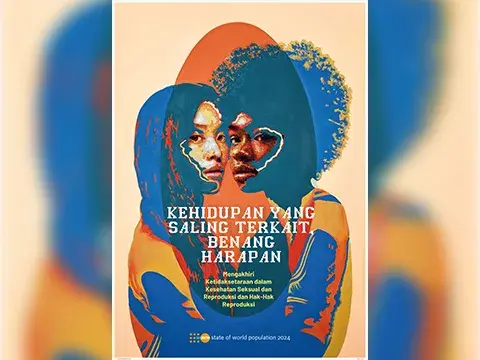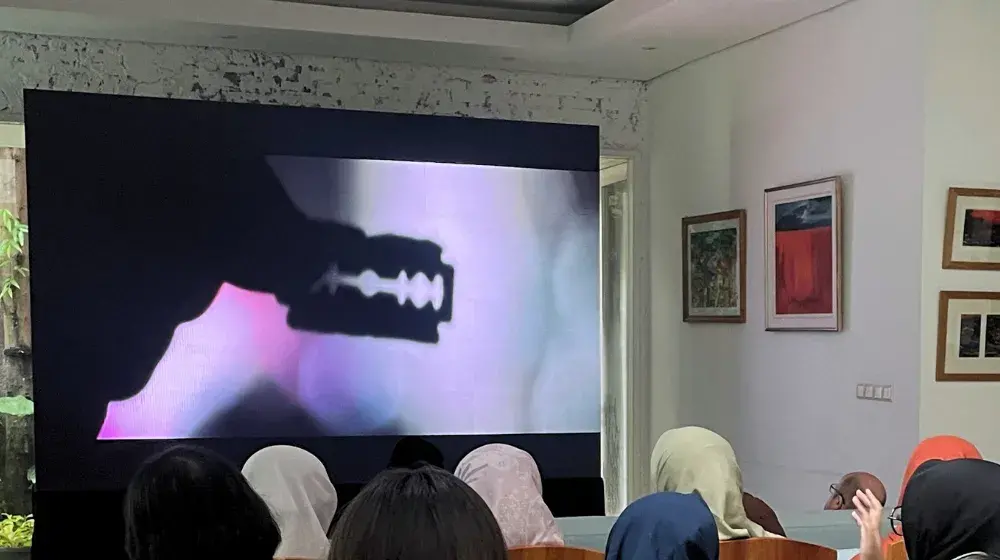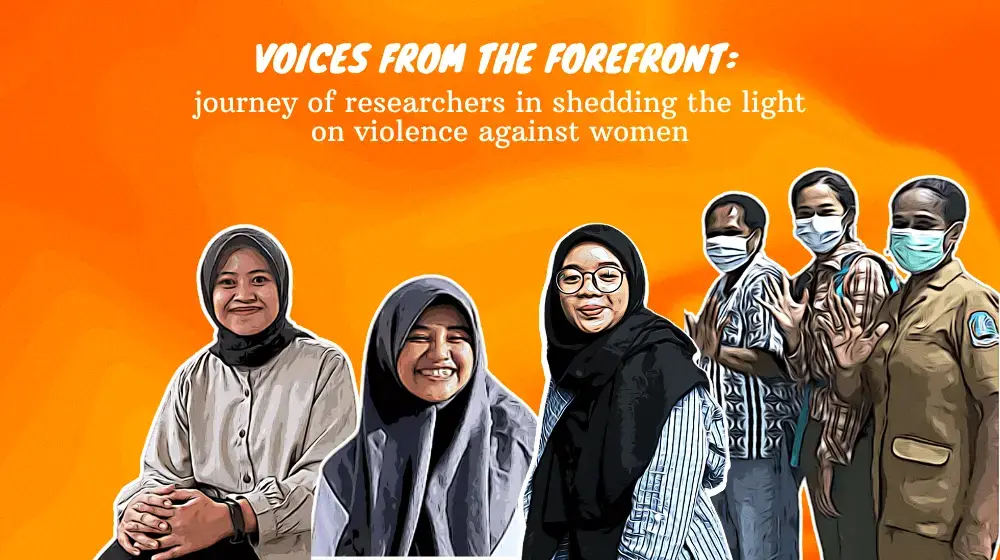“Have any of you ever experienced violence against women?” she asked.
“NOOO!!!” the crowd replied almost in unison.
“Superb, couples here really care for each other,” the wife of the country’s fourth President Abdurrahman Wahid said, nodding her head. Then she continued. “Are there among you, women whose husbands left without saying a word?”
Some timidly raised their hands into the air.
“…or whose husbands have remarried?” she asked.
Again, some hands were raised.
Shinta continued, “Have any of you ever been financially neglected by your husband?”
“YES, WE HAVE!,” they replied loud and clear.
With a motherly patience and understanding, the former first lady asked her audience one last question. “Now, I would like to repeat my first question: “Have any of you ever experienced violence against women?”
All of a sudden, the gathering became quiet. The women looked at each other but none of them said a word.
This 2004 event clearly reflects the fact that many Indonesian women are not aware that they have been treated unjustly and that they can be classified as victims of violence against women.
This event can be something for us to ponder on as women around the world recently celebrated Women’s Day and while the world representatives have just completed the review of the 10-year implementation of the Beijing Platform for Action in New York, highlighting the twelve critical areas, including poverty, education, healthcare, inequality in the sharing of power, the girl-child, armed conflict, human rights violation, environment and violence against women, among others.
At national level, data released by the National Commission on Violence against Women recorded that in 2004, there are around 14,020 cases of violence, classified into domestic violence, violence occurring in the community, women trafficking and violence committed by state personnel. This 2004 figure doubled from the previous year at 7,787 cases.
“We still have a long way to go. Many people still think that women’s place is at home, to do chores and to loyally serve their husband. And it is this set of expected behavior of women that preserve gender discrimination,” said Faishol Adib, program officer with an Islamic non-governmental organisation (NGO), Puan Amal Hayati.
This NGO, working closely with officials from local hospital, the police, the district court and local psychologists, runs 5 women crisis centers, located in Tasikmalaya and Indramayu in Central Java and Jember, Madura and Malang in East Java.
The United Nations Population Fund (UNFPA) supports the NGO’s Tasikmalaya and Indramayu centers which have received around 20 and 17 reports from victims of violence, respectively.
In most of the cases, Faishol said, “the perpetrators are people close to the victims, like the husband, who resort to acts of violence like beating and slapping when he got jealous or wished to remarry or when she refused to have sex.” Other causes include his or her wish to get a divorce and extra marital affair.
The NGO has brought 17 cases to the court of justice but the cases were left hanging with no verdicts have been given. The fact that most of the victims depend on the perpetrator, feel insecure due to lack of protection and fear of unfair judgment by members of the society, have discouraged victims of violence to report the abuse they have experienced. And apart from this unfavorable condition, the gender-insensitive treatment and interrogative-like questioning by law enforcers that these victims would likely receive have led them into thinking that they have no place to go.
The challenge now is to encourage these victims to seek help.
“Establishing gender sensitive treatment for victims from all parties concerned is important to assure these vulnerable women that they are not alone and that help is available,” said Dr. Bernard Coquelin, UNFPA Representative in Indonesia. He also stressed on the importance of ensuring access to information on where and how these women can get the support they need.
The Puan Amal Hayati NGO runs the centers with an aim to assist traumatized women by providing counseling, legal and medical support (if needed) and to protect them from the abuser in its shelters. In these centers, the NGO uses religious approach to support the victims and carries out activities to sensitize the stakeholders, including government official, law enforcers, community and religious leaders on gender equality and equity.
“In many communities in Indonesia, the involvement of religious leaders is especially important to foster awareness on gender,” Faishol added.
It also empowers women to make an informed decision. Most of these vulnerable victims have high hopes that islah (peaceful settlement) alone would end the beating and motivate the perpetrators to change but later they would only find themselves trapped in a circle of violence-peaceful settlement-second chance, which occurs repeatedly.
“Some cases need to be settled in the court because islah alone is not enough to end such injustice,” Faishol explained.
For more information, please contact:
UNFPA --Maria Endah Hulupi
Media officers: mendah.unfpa@un.or.id
Tags: Gender-based Violence




